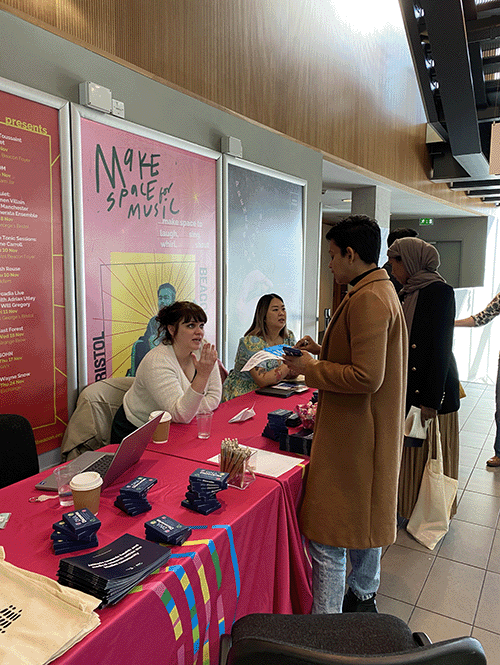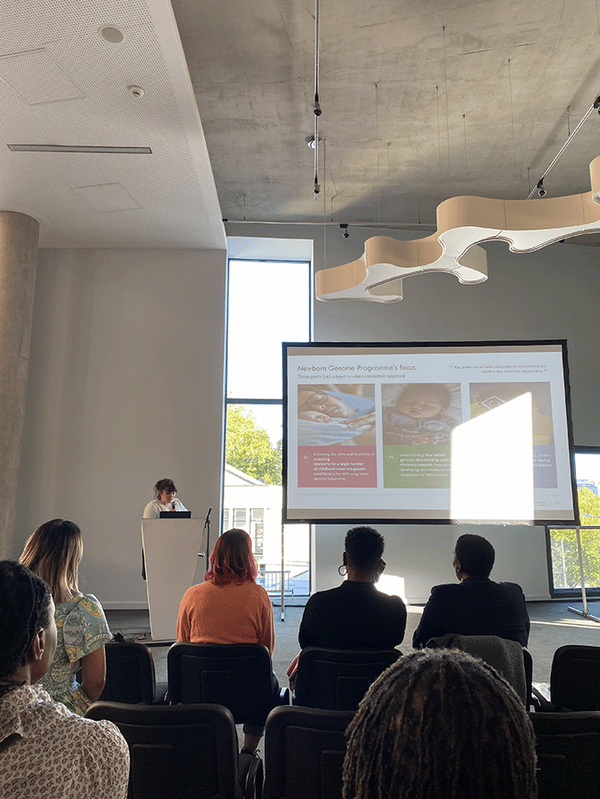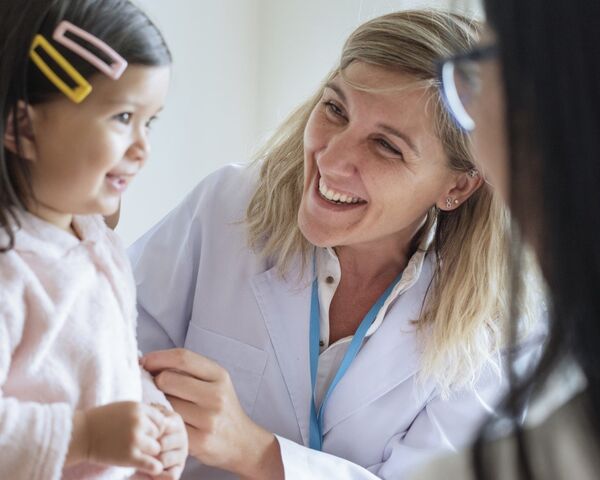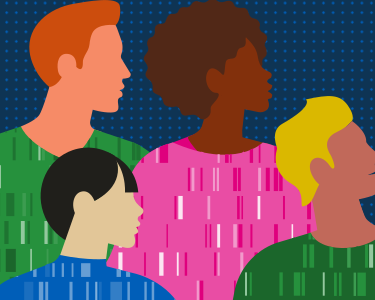Bristol Community Health Day
By Primrose Granville onPrimrose Granville writes about the success of the Community Health Day we supported in Bristol last month. This event was as important to us as it was for the local community, because of - rather than in spite of - the fact that it wasn’t just a genomics focus. To be able to have a national conversation about genomics, we need to be part of the national conversation about health inequities first. Building trust with and between grassroots groups and NHS partners is just one small step. Find out more about Genomics England Ambassadors' work here.
On Saturday 8th October 2022, at the still newly-named Bristol Beacon (formerly Colston Hall), Bristol saw its first hybrid Health Day. The day was of major significance and so too the venue.
Bristol is a unique city and carries within its boundaries an array of relationships as a result of its diverse population. There are over 91 languages spoken in the city.
So, how does one make a Community Health Day involving grassroots community organisations, delivering healthcare services to marginalised communities and the NHS who don’t seem to be able reach said communities, work?
The answer came at 4am on Sunday 7th August 2022. I am an Ambassador for Genomics England. I live with several underlying health issues, some serious and inherited, some the result of life-saving medication, and another to a freak accident. I am a ‘frequent flyer’ in the NHS and particularly the North Bristol Trust. I grew up in Jamaica, I know what it is to pay for medical treatment before getting any form of treatment. I am in love with this wondrous machine that guarantees treatment at the point of need, no question about payment asked. So, what then is this ‘health inequity’ that I keep hearing about?
Despite my rose-tinted glasses experience of the NHS and having campaigned on their behalf for many things including blood and organ donation, pain management and a few others, I would come to experience health inequity in the most traumatic way.
“It’s all about money and you’re not entitled!”
Imagine hearing those words while grappling with the effects of a post-transplant, drug-related diabetes diagnosis that you know isn’t going right, in the middle of the first COVID-19 lockdown? The whole story is too painful to tell but I chose to act positively than be angry.
Now back to the Community Health Day.
It was a bustling day, with footfall consistent throughout the 5 hours. There were over 22 stalls and private consultation booths. There were workshops, mini and large seminars, covering everything health and health equity. So riveting were the seminars that we ran late and the venue staff thanked us for bringing the content we had to them. Attendees were from a diverse collective and represented everyone you could possibly think of.
The day also saw a unification of grassroots community organisations who deliver healthcare services to their various communities. Communities who are labelled as ‘hard to reach’ and ‘unengaging’ when really all they are is lacking trust in the NHS. No one really wants to suffer unnecessarily from their health issues. People want to be treated and made as better as they can possibly be. Health inequity stops that happening.
The second half of this unification came from NHS clinicians. They gave their time to attend the day, meet and get to know these organisations that they want to reach but aren’t able to. Not everyone or everything in the NHS is given to health inequity and we saw that at our Community Health Day.
There were so many different aspects of health represented. From blood and organ donation to Fibro scanning; mental health to sexual health; maternal health to lung health; and everything else representing health in between.
On the day, NHS clinicians carried out over 80 spirometry tests & 40 Fibro (liver) scans. I did both and would have waited forever to get that via a GP appointment. Attendees could learn about breast and prostate examinations; mothers experiencing the loss of a child got to engage with a group who could not only help but signpost them to further help.
The most beautiful part of the day was watching the connections being made. I often stood by the glass panels watching the expressions on people’s faces as they discovered each other’s roles, responsibilities and talents. Community to NHS; visitors to stall holders; the discovery was awesome.
People left that event thinking differently and so far, acting differently. Relationships have been and are being built. Those who have the resources now know they must work with those who have the ear of their communities. Community organisations who operate with minimal resources now know they can work with their local NHS partners to deliver.
The learning was solid: we can do this, we must do this again and we will do this again.
So we are, September 2023. If you didn’t attend in 2022, we look forward to seeing you in 2023.
I must thank Genomics England for their support in making this day possible. Dr. Huzaifa Adamali & Monira Chowdhury of North Bristol NHS Trust (NHS NBT) for helping to make it happen in such a short time. The eight grassroots community organisations, NHS NBT, NHS University Hospitals Bristol and Weston NHS Foundation Trust (NHS UHBW) clinicians and team members, who all gave their time and advice so willingly. Our volunteers, the Bristol Beacon team for the flawless execution, and The Bristol Loaf for the scrumptious meals on the day.
Thank you all.

Genomics England representatives talking to attendees at Bristol Community Health Day.

Engagement Manager at Genomics England presenting at Bristol Community Health Day.


